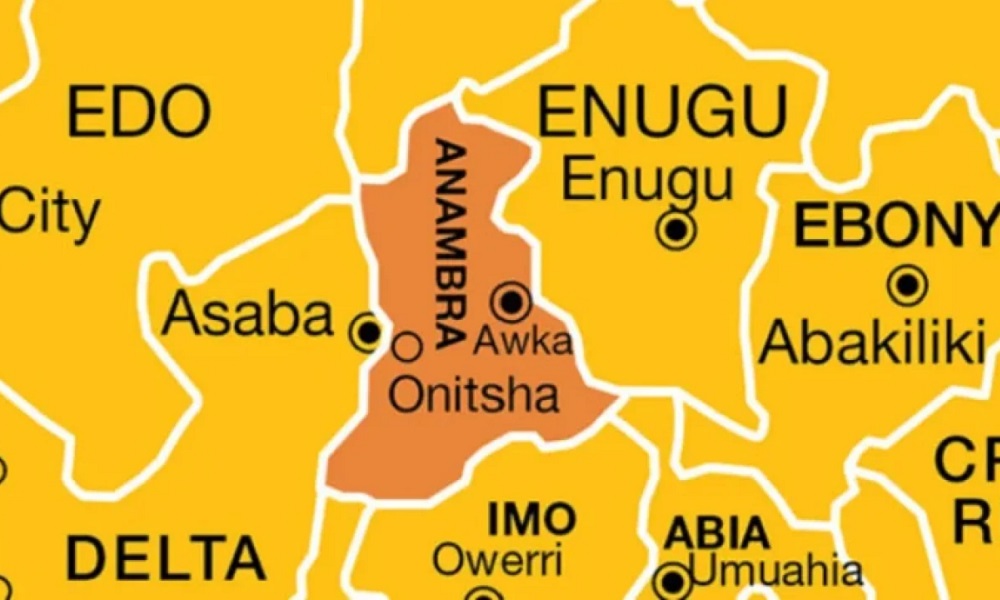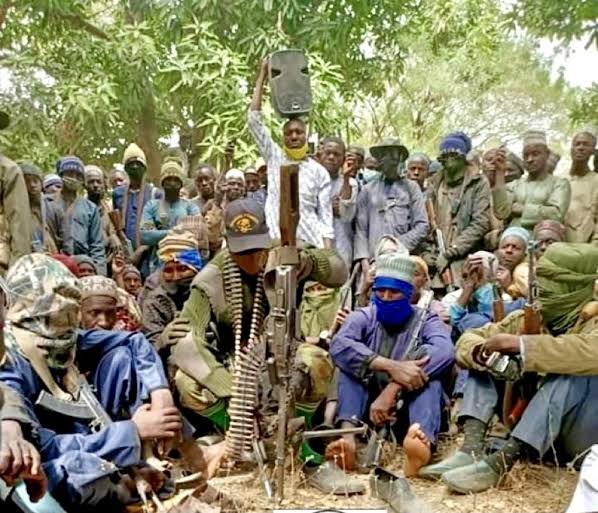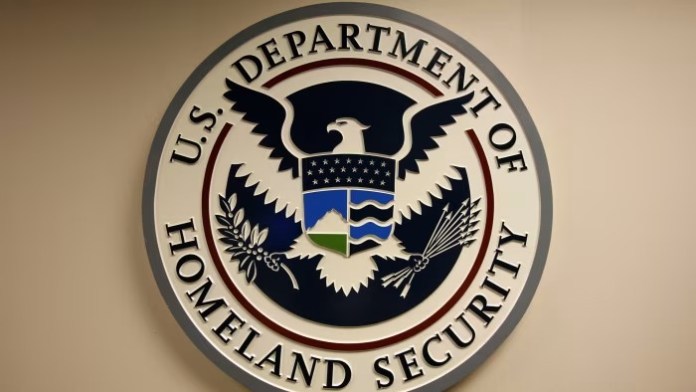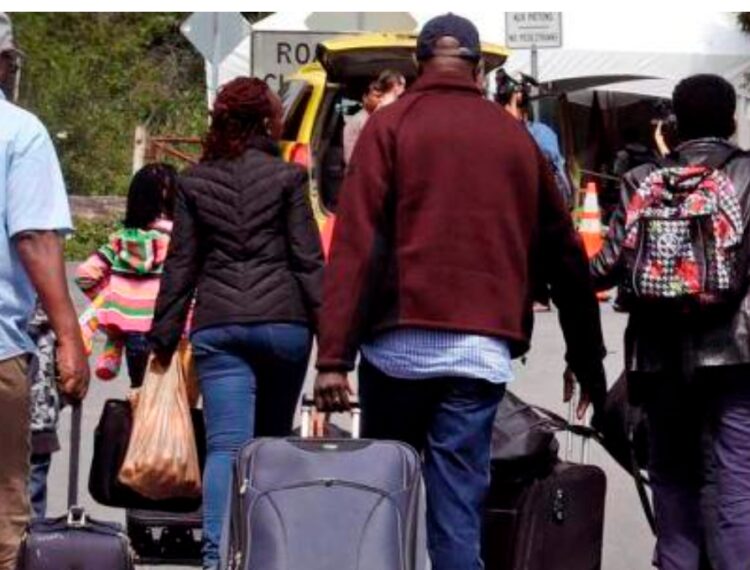News
Anambra sand mining ban threatening 8,500 jobs, state revenue – Miners

Unless the Anambra State Government urgently rescinds its decision, there are fears that over 8,500 river sand miners and their workers may have been displaced, while the state loses over N21 million weekly, following the banning of sand mining and sealing of all sandpits by the state government.
South-East PUNCH findings also showed that no fewer than 500 tipper drivers in Anambra State, working with river sand miners in the state, have transferred their services to other neighbouring states where sand is mined, following the Anambra State government’s ban on river sand mining activities.
The Anambra State government, had through a public notice, jointly signed by the Commissioner for Petroleum and Mineral Resources, Anthony Ifeanya; Commissioner for Environment, Dr Felix Odimegwu; Managing Director, Anambra State Solid Mineral Development Company Limited, Prof. Charles Ofoegbu, and Attorney-General and Commissioner for Justice, Prof Sylvia Chika Ifemeje, directed sand miners in the state to stop all sand mining activities, pending their clearance by the Ministry of Petroleum and Minerals Resources and Ministry of Environment.
The notice also directed all the sand miners to register with the Ministry of Petroleum and Mineral Resources, together with their dredging/mining equipment.
The government claimed in the public notice that the sand miners are involved in illegal operations and other sundry offences that harm their host communities’ environment.
However, the sand miners denied and dismissed all the allegations levelled against them by the state government as not holding water, saying that all their operations and activities were approved and operational licenses issued to them.
They insisted that their activities were supervised daily by the Federal Ministry of Environment and Solid Minerals Development, together with the National Inland Waterway Authority.
They rather accused the state government of making frantic efforts since 2015 without success to take control of the Federal Government’s duty over them.
The sand miners also presented to journalists all their operational licenses and receipts of all the payments they made to the Federal Ministry of Environment and Solid Minerals Development, and NIWA which authorised their sand mining activities.
Addressing journalists through their Chairman, Board of Trustees, Sir Christopher Mbaegbu, during their meeting in Onitsha, members of the Sand Miners Association of Anambra State, said they couldn’t have been operating in the state without approval from the Federal Ministry of Environment and Solid Minerals Development, and NIWA.
Mbaegbu described the ‘illegal operation’ allegation against them as an attempt to divert attention, intimidate and blackmail them, to take their job or cow them into submission by the state authorities for extortion of money from them.
He described the banning of all sand mining activities in the state and the sealing of their sand pits as counterproductive action that benefits neither the state government nor the sand miners.
He said, “We are losing money, the state government is also losing millions of naira, it should be getting from us on a daily and weekly basis to the governments of neighbouring states, where sand mining activities are ongoing.
“We pay the Anambra State government N1,000 for every six cubics of tipper loaded with sand, while the state also gets N4,000 from each 10 tyres tipper that lifts sand in the state. More than 3,000 trips of sand are lifted daily from the sealed sand pits and beaches and the state is currently losing over N21 million per week for the ban it placed on sand mining and sealing of our sand pits in the state.
“The action of the Ministry of Petroleum and Minerals Resources and Ministry of Environment, banning our activities amounts to working against the government of Anambra State. We, therefore, urge Governor Charles Soludo to lift the ban without further delay, as it is not only against us and the state government but also has a chain reaction effect of halting all building activities by individuals and groups in the state.
He added, “Traders of building materials are also suffering a decline in their sales due to the halt in building construction because of the ban placed on sand mining activities in the state.
“We think that if the state government wants us to assist in any way, which we have been doing through paying taxes, levies and other government-imposed duties, the wise step is not banning our activities. We can be operating while negotiating with the government on areas to contribute and assist the state.
“Banning our activities when we have two Federal Government agencies that supervised our activities, and at the same time calling us for negotiation and giving us conditions to meet before we could be allowed to operate in the state is infringing on our federal government given right. It is also placing the cart before the horse, the governor should call those behind this action to order.”
It was also gathered that the state government has given the sand miners conditions for clearance before they can operate, such conditions include registration with the state government through the Ministry of Petroleum and Mineral Resources, Jerome Udoji Secretariat Complex Phase II, Awka.
Other conditions are submission of completed form to the Mining Reforms Committee Desk at the Government House Awka, providing registered operational office in Anambra; evidence of company registration (CAC) documents; documented operation staff in Anambra State; valid title (Small Scale Mining Lease) or Mining Lease Quarry Lease, (Sand Quarry Lease) Title Grant; evidence of lease application to the Nigerian Mining Cadastra Office Abuja (where applicable).
They are also to provide detailed geological reports with reserve estimation; mine design and production rate; EIA or Environmental Audit Report and EMP; and community development agreement; evidence of implementation of CDA and evidence of payment of mineral royalties to the Federal Government from where the state is paid 13 per cent derivation fund, as other requirements to meet before they would be allowed to operate in the state.
Earlier, the sand miners had through their lawyer, Ben Chuks Udoh, written to the Minister of Environment and Solid Minerals Development in Abuja, demanding clarification.
Udoh’s letter is also seeking clarification on whether there is any law that has divested the ministry of her authority in dealing with solid minerals development and the granting of mining leases, just as to know, following the directive of the Anambra State government to sand miners in the state, will in any way undermine the authority and position of the Federal Ministry of Environment and Solid Mineral Development.
The letter also wanted clarification on whether the Federal Ministry of Environmental and Solid Mineral Development was put on notice by the Anambra State government in connection with the letter/circular from the Anambra State Ministry of Information, banning all sand mining activities in the state.
Udoh also wanted to know the official position of the Federal Ministry of Environment and Solid Mineral Development in connection with the directive of the Anambra State government.
He reminded the minister that the Anambra State government by its action deprived and denied the sand miners the capacity to be able to pay royalties due payable to the Federal Government, just as the ability to take care of their families in the face of economic realities.
The sand miners on their part wrote to the Managing Director of the National Inland Waterway Authority, complaining that the state government had entered into the Right of Way Permit it gave them, and kept harassing them through arrests of their members and have started collecting tolls on the Right of Way NIWA gave them, claiming that it is state land and not Federal Government’s land.
The letter which was signed by the Chairman of the Board of Trustees of Sand Miners Association of Anambra State, Sir Christopher Mbaegbu and the Secretary, Obiora Chukwuma, was copied to the NIWA Area Manager, the three senators representing Anambra state, the members representing Onitsha North/South federal constituency and his Ogbaru counterpart, also questioned if the Right of Way given to sand miners in the state still falls within the authority of NIWA, which is within the control of the Federal government.
The letter further added, “It is on this note that we have to notify you that the very Right of Way permit that NIWA has continually been issuing to us and our members have completely been taken over by the Anambra State government and we urged NIWA to act fast.
“We wish to categorically state that the allegation that we are causing erosion is not true because we operate with River Craft Boat and Dredgers. The two pieces of equipment are movable, we can move from Anambra to Delta and Kogi State to bring sand into Anambra State. So the claim that our activities were causing erosion is a lie from the pit of hell.
“Our problem started on March 11, 2024, when Onitsha South Local Government Transition Chairman, Mr Emeka Orji, came with men of Operation Clean and Healthy Anambra State, OCHA Brigade, invaded Ose Ogbe Ijaw sand dumping site along Niger Street and after that, they continued invasion of other sites and then started destruction of the beaches and machines, claiming to be acting on the instruction of the governor.
“We have made several efforts to meet the governor through written applications and direct contacts but we have not been allowed to see him, All efforts we made to see the governor were blocked.
“We are using this medium to appeal to Governor Soludo to lift the ban on sand mining in the state and call the river sand miners to a meeting. We are helping the state to stop crime in the state with thousands of unemployed youth who have been removed from the streets. Returning them to the streets with this ban on our activities is dangerous to the state.”
News
Banditry:” I was chained for 32days while in their den, killed my wife as I watch-Nat’l Assembly DD narrates experience

A Deputy Director at the National Assembly Commission, Michael Adesiyan, has narrated his near-death experience in the hideout of bandits.
Adesiyan was abducted from his Chikakore residence in Kubwa, a suburb in the nation’s capital, alongside his wife on January 26th, 2025 before he was rescued on April 7.
The civil servant narrated his ordeal to journalists at National Counter-Terrorism Centre, Abuja, when fresh 60 kidnapped victims, who were rescued by the security forces were presented to the National Security Adviser, Nuhu Ribadu.
Adesiyan called on the federal government to immediately look for a way to disarm the criminals and educate them, and possibly reintegrate them back to the society, adding that “the bandits don’t know what they are doing.”
According to him, his abductors were between the ages of 17 and 20, and they were stark illiterate people who were not aware of what they were doing, and could not even count N1 million let alone hundreds of millions they were asking as ransom.
He specifically said they were chained for 32 days he spent in the abductors’ den, adding that they killed his wife in his presence.
“I want to thank the government for rescuing us. I was chained for 32 days. I want to advise that the government should find away to disarm or arrest them (bandits), instead of confronting them.
“They can send them to school. Some cannot even count one million. They are stark illiterates. They are young people of ages 17 and 21. They don’t know what they are doing.
“So if they can bring them out, if they want to learn work (apprenticeship), they can let them do, retrain them, reorientate them, that they can be useful to themselves.
“My advice is to, instead of killing them, arrest them, reorientate them. If you want to educate them, they can then work. That’s my advice,” he said.
When asked why they were in a rush to tell their family members to pay ransom, he said, “When they kill someone in your presence, you would give them anything they want.
“For instance, they killed my wife in my presence. If they request your head in that situation, you will give it to them.”
Earlier, while giving a breakdown, the Coordinator, National Counter-Terrorism Centre, Maj. Gen Adamu Laka said the victims comprising 35 males and 25 females, were rescued on Monday April 7, by troops of 1 Division of the Nigerian Army, in a coordinated operation supported by other security and intelligence agencies.
News
US revokes more than 500 foreign student visas

No fewer than 500 foreign students have had their US visas revoked in recent weeks, as Donald Trump’s administration doubles down on its crackdown on universities.
Nafsa, a network of universities and individuals engaged in international education and exchanges, told the Financial Times on Tuesday it had identified 500 visa revocations by compiling reports from higher education institutions across the US.
“This is uncharted territory on so many levels,” Fanta Aw, chief executive of Nafsa said. “It’s at an unprecedented level and it’s quite concerning because there is a lack of clarity which is creating anxiety.”
The Department of Homeland Security and the Department of State are implementing a wave of actions against university students across the country. Institutions are often unaware that their students have been targeted so cannot easily track their cases or offer support.
The state department’s visa revocations require students to leave the US and reapply for visas after fresh scrutiny. Separately, the homeland security department has triggered “status termination”, Aw said. In both cases, she added, the processes for appeal were unclear.
“There will be a tsunami of legal cases coming,” she warned.
Multiple reports have arisen of foreign students and university employees being taken to detention centres and subsequently facing deportation.
A number of universities have issued warnings to students and faculty against travelling abroad for fear of arbitrary questioning or detention on returning to the US.
Aw said reports of visa revocations had spiralled from students at elite universities — including Stanford, Harvard and Columbia — to a far wider range of higher education institutions across the country. They targeted many different nationalities for a variety of reasons, including for traffic violations.
Since Trump’s election, a growing number of US-based faculty have sought jobs elsewhere, and increasing numbers of high school and college students are applying to universities abroad.
The Central European University in Vienna on Tuesday said US applicants for its programmes in the upcoming academic year had jumped one-quarter, while the University of Toronto reported a “meaningful” rise compared to past years.
On Monday, 16 associations of US universities called for a briefing from the homeland security and state departments, after uncoordinated orders from the authorities requested students to “self-deport”.
The group said the orders contained “no additional information about how to appeal this decision or verification to ensure that mistakes are not being made in identifying these individuals”.
The association warned of the implications for the country given the 1mn international students attending US colleges and universities, who contributed an estimated $43.8bn to the economy, created 375,000 domestic jobs and contributed “to institutions’ intellectual vibrancy and the global literacy of domestic students”.
The homeland security department did not reply to a request to comment.
News
Japa: Nigeria loses $366m as 16,000 doctors move abroad

The Coordinating Minister of Health and Social Welfare, Prof Muhammad Pate said over 16,000 Nigerian doctors have left the country in the last five to seven years to seek greener pastures in other countries.
Prof Pate also said the doctor-to-population ratio is now 3.9 per 10,000 in the country, while the estimated cost of training one doctor exceeds $21,000.
This was as he lamented that nurses and midwives who left have also thinned the number of healthcare workers in the country.
The minister disclosed this at the seventh annual capacity building workshop of the Association of Medical Councils of Africa in Abuja on Tuesday with the theme, “Integrated healthcare regulation and leadership in building resilient health systems.”
According to him, an increasing number of Nigeria’s talented healthcare professionals aspire to work in other countries, driven by factors such as economic opportunity, better working conditions, more advanced training, and superior research environments abroad.
He said the migration of health professionals from developing countries is not new, but it has accelerated in recent years.
“In Nigeria alone, over 16,000 doctors are estimated to have left the country in the last five to seven years, with thousands more leaving in just the past few years. Nurses and midwives have also thinned in numbers. The doctor-to-population ratio now stands at around 3.9 per 10,000—well below the suggested global minimum.
“But this trend is not just about people leaving. It represents a fiscal loss.
The estimated cost of training one doctor exceeds $21,000—a figure that reflects the magnitude of public financing walking out of our countries. It deeply affects our health systems—leaving many of our rural communities critically underserved.”
He, however, emphasised that the phenomenon offers an opportunity to rethink and reshape the policies, to manage the valuable health workforce in ways that benefit our countries first and foremost.
“In Nigeria, guided by the vision of President Bola Ahmed Tinubu, who was appointed by African Heads of State as the AU’s Continental Champion for Human Resources for Health and Community Health Delivery—we are pursuing a new direction. His vision is that Nigeria becomes a prosperous, people-oriented country, contributing to a peaceful and thriving continent. Not a standalone Nigeria, but a Nigeria that is interlinked with all our neighbours and sister countries. Under the Renewed Hope Agenda, and within the framework of the Nigeria Health Sector Renewal Investment Initiative, we have embraced a new path—combining strategic realism with visionary ambition.
“The National Policy on Health Workforce Migration is a cornerstone of this path. It is designed to address health workforce migration with dignity—dignity for health workers, for the country, and for the profession. It is data-driven, evidence-guided, and signals a clear direction. This is not a restrictive policy, nor is it one born out of resignation. We understand that the global health workforce shortage is at 18 million, and countries in the Global North face their own human resource crises due to demography and other factors. But our response is based on stewardship—balancing the rights of health professionals to seek opportunities abroad with our duty to protect the integrity and viability of our national health system.
“The objectives are clear. To retain and motivate health workers currently serving in Nigeria—thousands of whom work under difficult conditions; to establish ethical norms and explore bilateral frameworks for recruitment, aiming to correct global asymmetries; to expand training capacity—not only for domestic needs, but to contribute to global workforce needs, to enable structured reintegration for the thousands of Nigerian professionals abroad; and to strengthen governance, improve regulatory coordination, and build real-time data systems.”
He urged Africa to lead in forging a new global compact on health workforce mobility—anchored in pan-African training and accreditation standards; shared planning tools, evidence, and data; continental negotiating platforms with destination countries; and sustained investments in the people who care for our people.
The President of AMCOA, Prof Joel Okullo, stressed the importance of collaboration among African countries to tackle healthcare challenges and improve regulation and leadership across the continent.
He expressed the belief that the outcome of the workshop would produce actionable strategies to improve healthcare services across Africa.
“This year’s theme highlights our commitment to tackling the diverse array of challenges within the health regulatory landscape. It seeks to empower AMCOA members and associate members with the wisdom and skills needed for informed strategic and operational decisions in the coming year.
“In this intricate regulatory tapestry, our discussions will illuminate strategies and insights that will bolster regulators’ capabilities. Our focus will revolve around managing health workforce mobility, improving credentialing and information data management systems
“Let us embark on this journey with enthusiasm and a shared sense of purpose. Our collaborative efforts today and over the next few days will lay the groundwork for transformative changes that will resonate across the healthcare landscape of Africa,” he noted.
The Registrar of the Medical and Dental Council of Nigeria, Dr Fatima Kyari, while welcoming participants to the event, noted that it was Nigeria’s first AMCOA workshop while commending the alignment of leadership towards the shared goal of patient safety.
The Board Chairperson of MDCN, Prof Afolabi Lesi highlighted the need for healthcare regulators to uphold global standards while adapting to local contexts.
Lesi, who is also the Chairman of the Local Organizing Committee for the workshop addressed the challenges of fragmented professional relationships that hinder implementation and compromise patient care.
“The reality is that while we have committed and clear directions at the level of governance, implementation of actions is bedeviled by the fractioned and fractious relationship among health workers who ought to be working as a team, with the patient (well-being and safety) as the primary focus of all our actions,” he said.
Photo caption: Members of AMCOA; the Registrar of MDCN, Dr Fatima Kyari; the Board Chairperson of MDCN, Prof Afolabi Lesi; the Coordinating Minister of Health and Social Welfare, Prof Muhammad Pate; the Minister of State of Humanitarian Affairs and Poverty Reduction, Dr Yusuf Sununu; and other AMCOA members.
-

 News19 hours ago
News19 hours agoOERAF held memorial lecture on conflict resolution, security/safety of community in Nigeria
-

 News5 hours ago
News5 hours agoUS revokes more than 500 foreign student visas
-

 News7 hours ago
News7 hours agoIbas picks administrators for 23 Rivers LGs(SEE list)
-

 News11 hours ago
News11 hours agoBandits have seized control of 64 communities in Plateau – Gov Muftwang
-

 News19 hours ago
News19 hours agoHoR Minority Caucus decries killings in Plateau, Benue states, urges immediate presidential decisive actions
-

 Economy11 hours ago
Economy11 hours agoMobile Money transactions hit $1.68trn in one year
-

 News11 hours ago
News11 hours agoAir Peace unveils new process for boarding passengers
-

 Metro7 hours ago
Metro7 hours agoINSECURITY! Gunmen Attack Abuja-Bound GUO Bus, Passengers Injured





